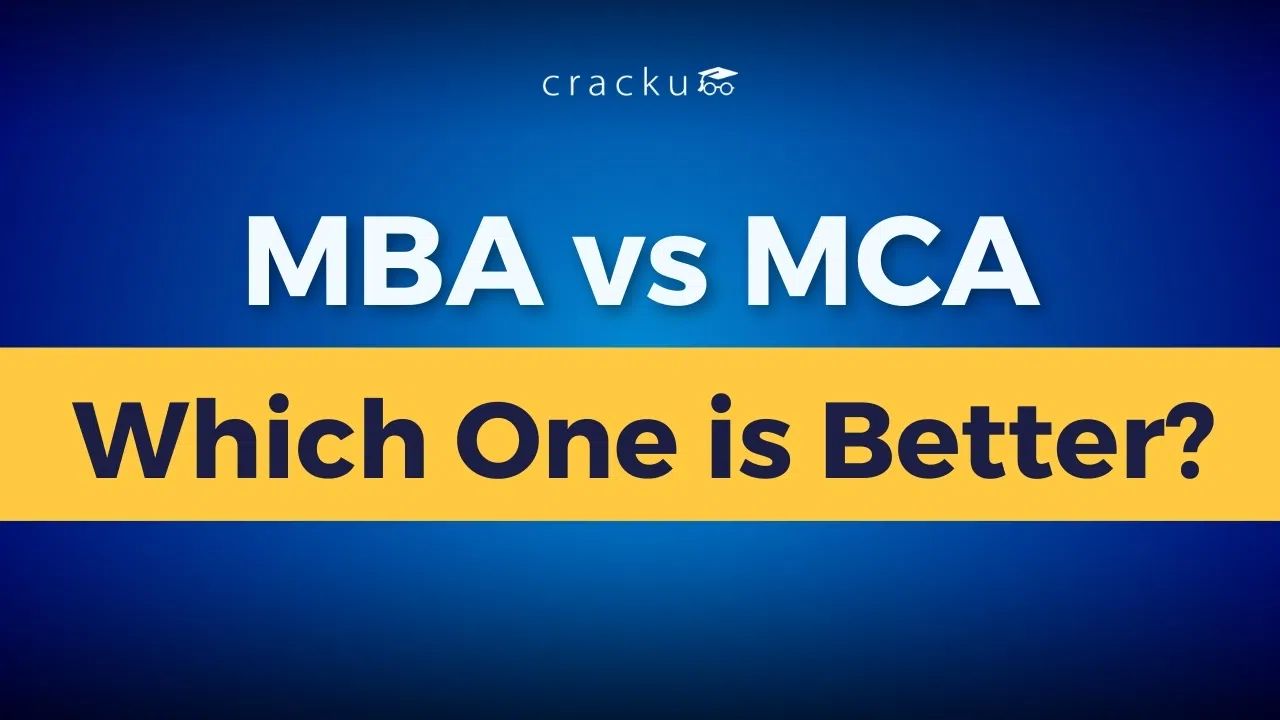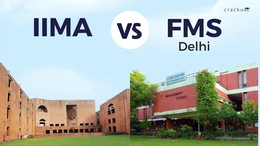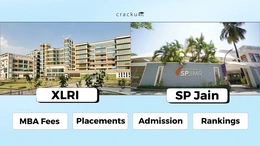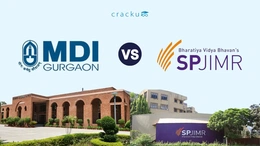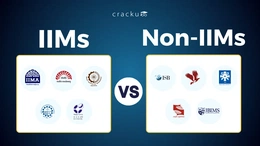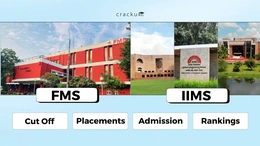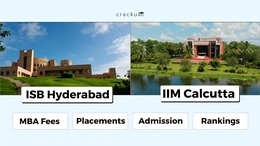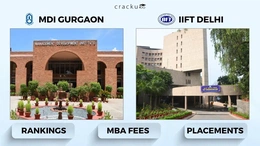MBA vs MCA: In India, upon completing an undergraduate degree, most students are unable to decide, particularly in fields such as commerce, computer science, or engineering, and have a major decision to make: to pursue a Master of Business Administration (MBA) or a Master of Computer Applications (MCA). Both are such degrees that land candidates in high-paying jobs. The MBA is focused on aspects of business, management, finance, strategy, and leadership. The MCA focuses on the skills required in the IT industry, software development, and computer applications.
MBA vs MCA: Which one is better?
Whether to pursue an MBA or MCA is a decision dependent on the students and their interests. For example, if a student enjoys programming-related work, an MCA would be the better option, as he would likely study programming, systems design, and enjoy a more technology-focused career. An MBA would be a better choice for those who want to enter either corporate management, consulting, a future leader in finance, and/or owner of his own start-up in the future.
Additionally, an MBA has a much wider array of industries (banking, FMCG, consulting, startups, supply chain, and healthcare), whereas there are limitations for the MCA, as graduates have careers in IT services, software developers, system administrators, and product-based technology companies.
Also, the ranking and prestige of the school matter. Students graduating from MBA programs at top MBA colleges (ie. IIM Ahmedabad, IIM Bangalore, XLRI) would be recruited for top consultants jobs with packages greater than ₹30-40 LPA, whereas students graduating from an MCA programs at tier one institutions like NIT Trichy or University of Hyderabad typically end up working in a multinational software company at a starting package of ₹7-15 LPA. Accordingly, “better” is always relative, short-term interest or long-term vision.
MBA vs MCA: Salary Comparison
Salary comparison is a common factor in choosing between an MBA and an MCA. Ultimately, it is the money and growth in the long term that matter in an individual's career. This doesn't mean there are no other factors, but these are generally the deciding ones.
MBA Salary in India (Trends 2025)
The MBA average salary for a brand new MBA graduate from a tier-1 institution (IIM, FMS, ISB) is between ₹20–40 LPA, with reports of some graduate packages exceeding ₹1 crore (with international offers). Tier-2 MBA colleges average between ₹7–15 LPA, and tier-3 colleges between ₹4–7 LPA.
| Industry | Package |
| MBA Finance & Consulting | ₹18–30 LPA (IIMs) |
| MBA Marketing | ₹12–20 LPA |
| MBA Operations/Supply Chain | ₹10–15 LPA |
| MBA IT/Analytics | ₹12–18 LPA |
MCA Salary in India (Trends 2025)
Fresh MCA graduates starting in areas like software development, data analytics, or system engineering typically earn an average of ₹5–10 LPA as starters. New MCA graduates are typically offered packages around ₹4–7 LPA by TCS, Infosys, Wipro, Cognizant, and Accenture. Product-based companies (Microsoft, Amazon, Oracle, Adobe), if they pass their competitive coding tests, can offer MCA candidates salaries ranging between ₹12–20 LPA.
In the event they've had 5–10 years of experience in different areas (Artificial Intelligence, Machine Learning, Cloud Computing, interests, Cybersecurity), they can expect to earn around ₹15–30 LPA. If we are simply looking at numbers, MBA graduates from top B-schools will earn more than MCA graduates, but looking at potential savings, MCA is far cheaper and represents a great ROI for students with coding and IT skills.
MCA Career Packages
| Industry / Role | Package |
|---|---|
| MCA Freshers (Software Development / Data Analytics / System Engineering) | ₹5–10 LPA |
| Service-Based Companies (TCS, Infosys, Wipro, Cognizant, Accenture) | ₹4–7 LPA |
| Product-Based Companies (Microsoft, Amazon, Oracle, Adobe) | ₹12–20 LPA |
| Experienced (5–10 yrs in AI, ML, Cloud, Cybersecurity, Data Science) | ₹15–30 LPA |
MBA Career Packages
| Industry | Package |
|---|---|
| MBA Finance & Consulting | ₹18–30 LPA (IIMs) |
| MBA Marketing | ₹12–20 LPA |
| MBA Operations / Supply Chain | ₹10–15 LPA |
| MBA IT / Analytics | ₹12–18 LPA |
MBA vs MCA: Placements Comparison
Placements are a very important aspect of deciding the value of a postgraduate program. The main MBA institutes draw from 250+ companies, and the roles are diverse in opportunities. Institutes in the tier-2 category, like NMIMS, TAPMI, and Symbiosis, yield placement rates of average packages around ₹10-12 LPA. For fresh MCA degree graduates, average placement packages are between ₹5-8 LPA, with some graduates able to find offers of ₹15 LPA+ with product-based organizations.
MBA Placements
MBA colleges in India are well-connected to companies and organizations within various industries such as consulting, banking, FMCG, IT services, and startups. The IIM colleges, ISB, and XLRI have been reporting almost 100% of placements through their recruiters in companies such as McKinsey, BCG, Deloitte, Amazon, HUL, Goldman Sachs, etc., and in high-paying roles. Roles include:
- Management Consultant
- Investment Banker
- Brand Manager
- Product Manager
- Business Analyst
- Operations Head
MCA Placements
The MCA sector has mostly concentrated placements in IT and technology-related roles. Excellent campus placements exist for the MCA programmes in NITs, Delhi University, JNU, and the University of Hyderabad. The topmost companies in terms of recruitment are TCS, Infosys, Wipro, HCL, and Accenture. Additionally, in-demand opportunities emerge in the following areas: AI, Data Science, Cloud Computing, Cybersecurity, and Full-Stack Development. Positions available include:
- Software Developer
- Database Administrator
- System Analyst
- Web Developer
- Data Scientist (with additional certifications)
MBA vs MCA: Eligibility Criteria
A minimum eligibility criterion needs to be fulfilled to get enrolled for an MBA or MCA in any of the colleges. The major difference between the eligibility of the two is that MBA welcomes students from all academic backgrounds, while MBA candidates from computer science and maths. Here is the minimum eligibility criteria for both MBA and MCA in India.
| MBA Eligibility in India | MCA Eligibility in India |
| A bachelor's degree in any discipline (arts, commerce, science, or engineering) with a minimum of 50% marks. | Candidates must possess a bachelor's degree in computer applications (BCA) or a science or engineering degree in which maths was studied in Class 12 or as a subject at the level of completion of their degree. |
| Final-year students are also eligible to apply. | Final year students can also apply |
| The most recognized entrance tests used to gain admission to MBA programs are CAT, XAT, NMAT, SNAP, MAT, GMAT, and other tests by the institute that offers the program. | Candidates must have a minimum of 50% aggregate marks. |
| Work experience (2-3 years) is valued heavily in MBA applications, for executive MBA and global programs. | There are two possible pathways that candidates can take to get into the MCA program. Possible entrance tests for MCA include NIMCET (national test for NITs), CUET-PG, TANCET, IPU-CET, and various state-based tests. |
MBA vs MCA: Admission Process
MBA admission process
- Candidates are either required to appear for the CAT or other exams such as XAT, GMAT, SNAP, etc., at either a local or national level.
- Depending on the exam score, institutes publish cut-offs.
- Written Ability Test, Group Discussion, and Personal Interviews to assess analytical ability, communication, and leadership.
- The composition of the merit list includes marks from academics, exams, and interview rounds.
MCA admission process
- Students could attend NIMCET, CUET-PG, or state-level MCA entrance exams.
- Counseling process: Colleges will decide based on merit rank and the student's preferences and allot the seat.
- Direct admission from Private Universities (without entrance exam) - universities accept students onto their courses, based on the students' qualifying scores.
:
MBA vs MCA: Which one is better?: Conclusion
MBA provides more diverse categories for placement across multiple industries, while MCA is specialized in technology-based roles, but relatively stable given the increase in low to high-paying employment opportunities within that area of growth in India with its IT Employment landscape. In comparison, it is clear that an MBA is much more expensive, but after it is noted to return larger salaries, MCA is more cost-effective with a technology route.
